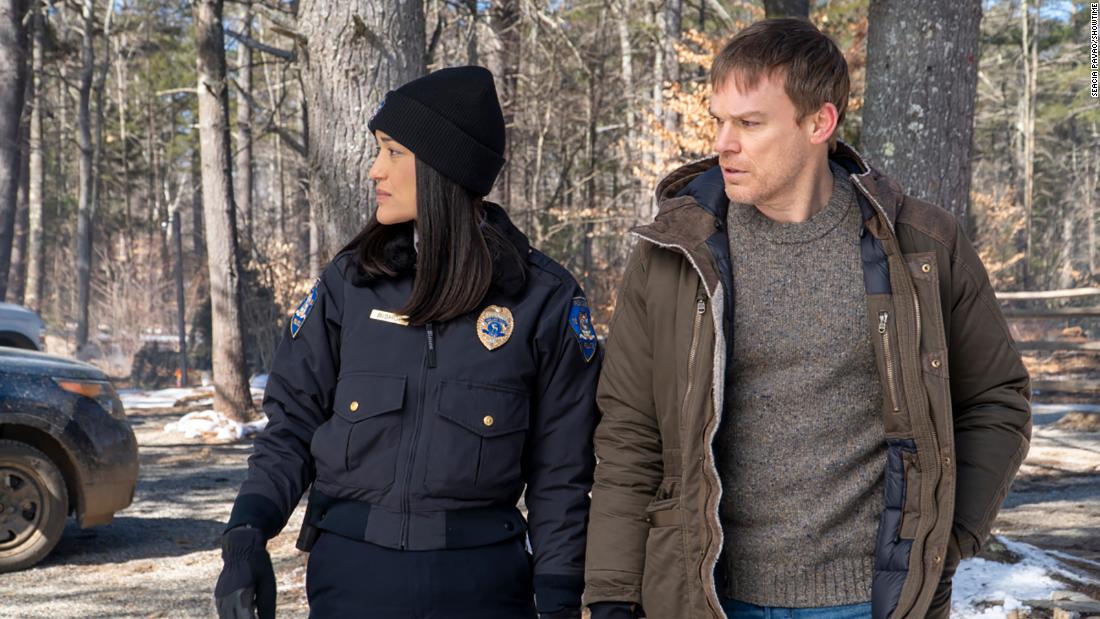‘Dexter: New Blood’ makes the most of its do-over in carving out a final chapter

Appropriately titled “Sins of the Father,” the final episode settled the fate of Dexter Morgan (Michael C. Hall), who — having cheated death multiple times before — finally accepted it. That the killing came at the hands of his son, Harrison (Jack Alcott), not only dispatched the serial killer to meet his seemingly inevitable fate but pulled the boy back from the brink of falling victim to his own “dark passenger.”
“I want to be normal,” Harrison said, in a moment that saw Dexter flash back on all the collateral damage done and lives lost over the years — his wife and his sister Debra (Jennifer Carpenter) among them — despite his “code,” justifying murder by reserving it for those he deemed worthy of vigilante justice.
The finish also saw Dexter’s girlfriend, the local sheriff Angela (Julia Jones), become the latest to identify his secret, surviving where those before her hadn’t. Of course, Dexter’s relationship with her reflected his arrogance and faith that he could continue to elude detection, and frankly, he would have gotten away again without his decision not to simply run away.
Angela not only connected Dexter to the Bay Harbor Butcher killings but, thanks to him, finally learned the truth about the missing women in her area, quite an impressive haul for any local cop.
Aside from providing a reminder about how incredibly good Hall is in this role, the “Dexter” revival worked so well in part because it didn’t fret about milking this any further, but rather sought to provide the character the sendoff that he lacked.
That included deftly reconnecting this run to the earlier series with Angela contacting Angel Batista (David Zayas), one of Dexter’s former colleagues in the Miami police department, who, like everyone else, had believed him dead.
“New Blood” didn’t tie up every loose end, and the mythological aspects of whether Harrison might be the worst kind of chip off the old block at times felt a trifle strained; still, in using this do-over to kill off the title character, writer-producer Clyde Phillips provided a long-deferred sense of justice that, significantly, didn’t romanticize its protagonist.
Long-running series can easily leave a bad taste behind with an unsatisfying finale, and in hindsight, this whole exercise felt designed to expunge that.
For all the latest entertainment News Click Here

